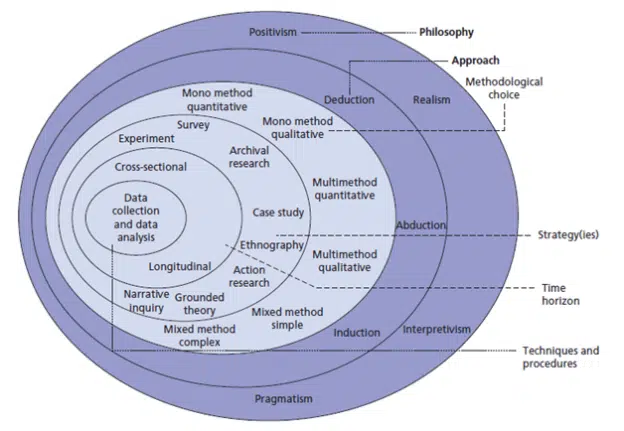Positivism is a research philosophy. It studies the social world using a scientific approach. Positivism believes in using a scientific, systematic, and objective approach to study the social world. In Addition, a research based on positivism in social sciences is similar to research methodology used in natural sciences. According to J.H Turner (2001), positivism is the study of social world using a scientific approach. However. it focuses to create universal laws on operative dynamics of the social universe.
According to Britannica, the term “Positivism” refers to a philosophy in the Western world that is limited to data and experimentation, and it ignores the experience or metaphysical speculation.
Positivism’s Approach to Understanding the Social World
To make it simple, positivism focuses only on data and experimentation to understand the social world. It ignores the context of data and experiences that can affect interpretation of meanings. For example, a researcher found that an increase in discounts offered to customers helps to increase sales. There is a positive correlation between discounts and sales. Positivism is only interested in exploring the statistical relationship between discounts and sales.However, it is not interested in understanding the decision-making process of consumer, or the factors that forced a consumer to buy a product at a discounted sales price. Therefore, positivism is focusing on statistical relationship between variables, not attempting to explain the process or phenomenon behind the statistical relationship.
Positivism’s Emphasis on Data and Objectivity
Positivism uses an objective approach to study and understand the social world. It is used in quantitative research to understand relationships between variables. Positivism is used in a theory testing approach, instead of using a theory building approach. It relies on quantitative data collected using various tools such as structured surveys and experimentation. However, Positivism is opposite to the research philosophy of interpretivism.
Positivism requires a researcher to be objective and independent. Human side of the social world and meanings based on human experiences are irrelevant in positivism. Positivism allows a researcher to use statistical techniques such as hypothesis testing, correlation, regression, and probability to reach a conclusion. It is widely used in causal research design that focuses on studying the cause-and-effect relationship between variables
Positivism’s Rejection of Context and Interpretation
Positivism believes in facts and logics. Also, it has an external focus and assumes that human actions and behavior are influenced by the external world. However, Human actions and behaviors are a response to an external stimulus. Furthermore, Positivism focuses to study universal laws and facts of the social world that influence human behavior and decisions. This research philosophy states that science must be objective, factual, logical, and based on observations or measurements.

Positivism is used in quantitative research. It uses deductive reasoning approach to test a hypothesis. In Addition, Positivism is a purely data-driven approach where researcher is required to distant himself from the context, population, and environmental settings. On the contrary, interpretivism uses an inductive reasoning approach for qualitative research. This research philosophy is subjective in nature. Also, Positivism is based on hypothetic-deductive method that derives a hypothesis from an existing theory. Quantitative data is collected from samples and processed to validate the hypothesis. Research methodology based on positivism is highly structured, organized, and rigid. However,it requires quantitative data or operationalization of qualitative variables to perform analysis.
Also read: Understanding Research Onion for Research Methodology

Key Take Aways
- Positivism is a scientific study of the social world
- It is an objective approach to study social world based on data and observations
- Quantitative data is required in a research based on positivism
- Positivism is an objective approach that requires researcher to be independent
- Positivism relies on deductive reasoning method
- However, it is a theory testing approach, not a theory building approach
References
Collins, H., 2010. Creative Research: The Theory and Practice of Research for the Creative Industries. s.l.:AVA Publications.
Seakran, U., 2003. Research Methods for Business. 4th ed. United States: John Wiley and Sons.
Turner, J., 2001. Positivism: Sociological. International Encyclopedia of the Social & Behavioral Sciences, pp. 11827-11831.
Wellington, J. &. S. M., 2007. Research methods for the social sciences. London: Continuum.
